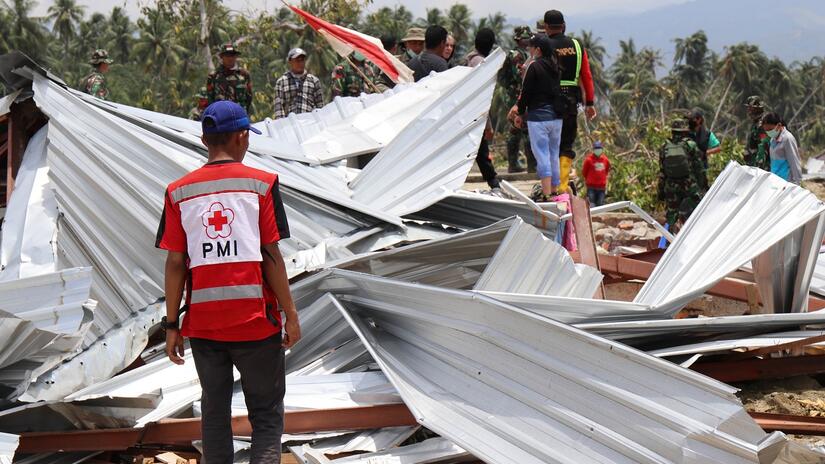Indonesia: 57,000 people homeless one year after Sulawesi earthquakes, tsunami and liquefaction
Palu /Kuala Lumpur, 23 September 2019 – One year after earthquakes, a tsunami and liquefaction struck Sulawesi in Indonesia on 28 September 2018, an estimated 57,000 people remain homeless, the Indonesian Red Cross and the International Federation of Red Cross and Red Crescent Societies (IFRC) said today.
The triple disaster killed more than 4,300 people and damaged or destroyed more than 103,000 houses. One year on, 14,300 households (57,000 people)[1], who lost their homes and farms to liquefaction are still living in temporary accommodation, unsure where and when they can rebuild.
Indonesian Red Cross or Palang Merah Indonesia Head of Disaster Management Arifin M. Hadi said:
“In the past year, Indonesian Red Cross staff and volunteers have brought emergency items like food, hygiene kits, mosquito nets and blankets to 108,000 people, and drinking water to 280,000 people. We will now shift our focus on creating a more resilient community, training people to build better, stronger homes, providing permanent water sources, rebuilding health centres and helping people restore their incomes by providing livestock or boats.
IFRC Indonesia Head of Country Office, Jan Gelfand said:
“We are hoping the government will redouble their efforts to identify settlement areas and help thousands of families still living in camps and temporary shelters build permanent homes with infrastructure that is more resilient to future disasters. Families still need our help to move on after this disaster.”
The Indonesian Red Cross, with the support of IFRC and partners, will focus on the long-term recovery needs of nearly 90,000 people in 24 of the worst-hit communities in Sulawesi through to 2021. Assistance includes awareness campaigns on health and hygiene, training to build safer houses, disaster preparedness and help to restart businesses or find new jobs.
[1] Source: Unpublished report from the Global Shelter Cluster, Indonesia https://www.sheltercluster.org/hub/sulawesi-tsunamieq. Please contact [email protected] for a copy of the file.
Press release
Six months later: 'Morocco remembers, so should we'— IFRC's call for continued support
Six months later: 'Morocco remembers, so should we'— IFRC's call for continued support
| Press release

